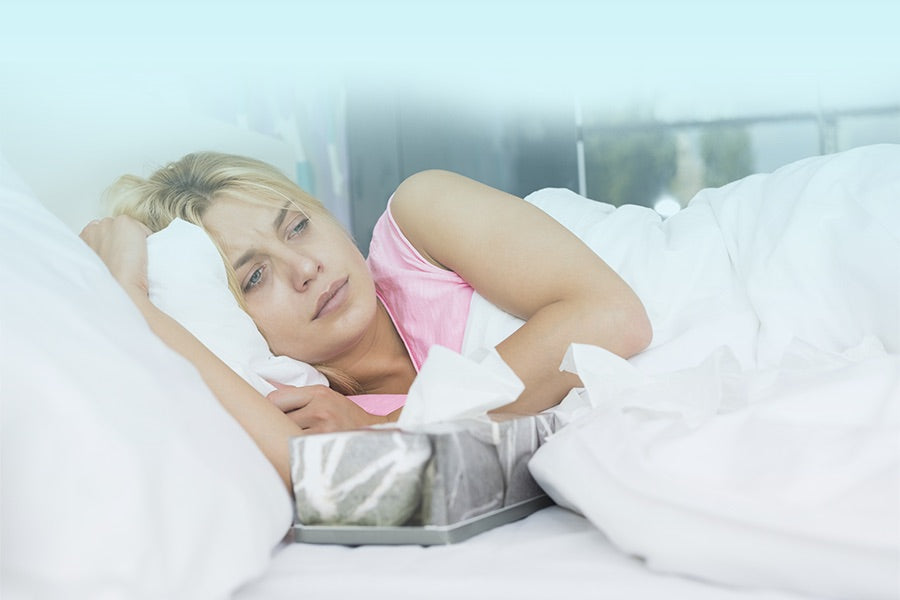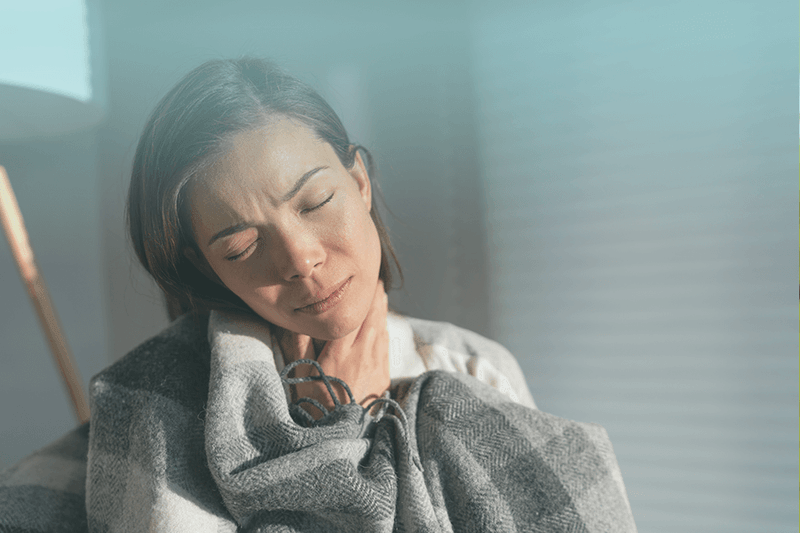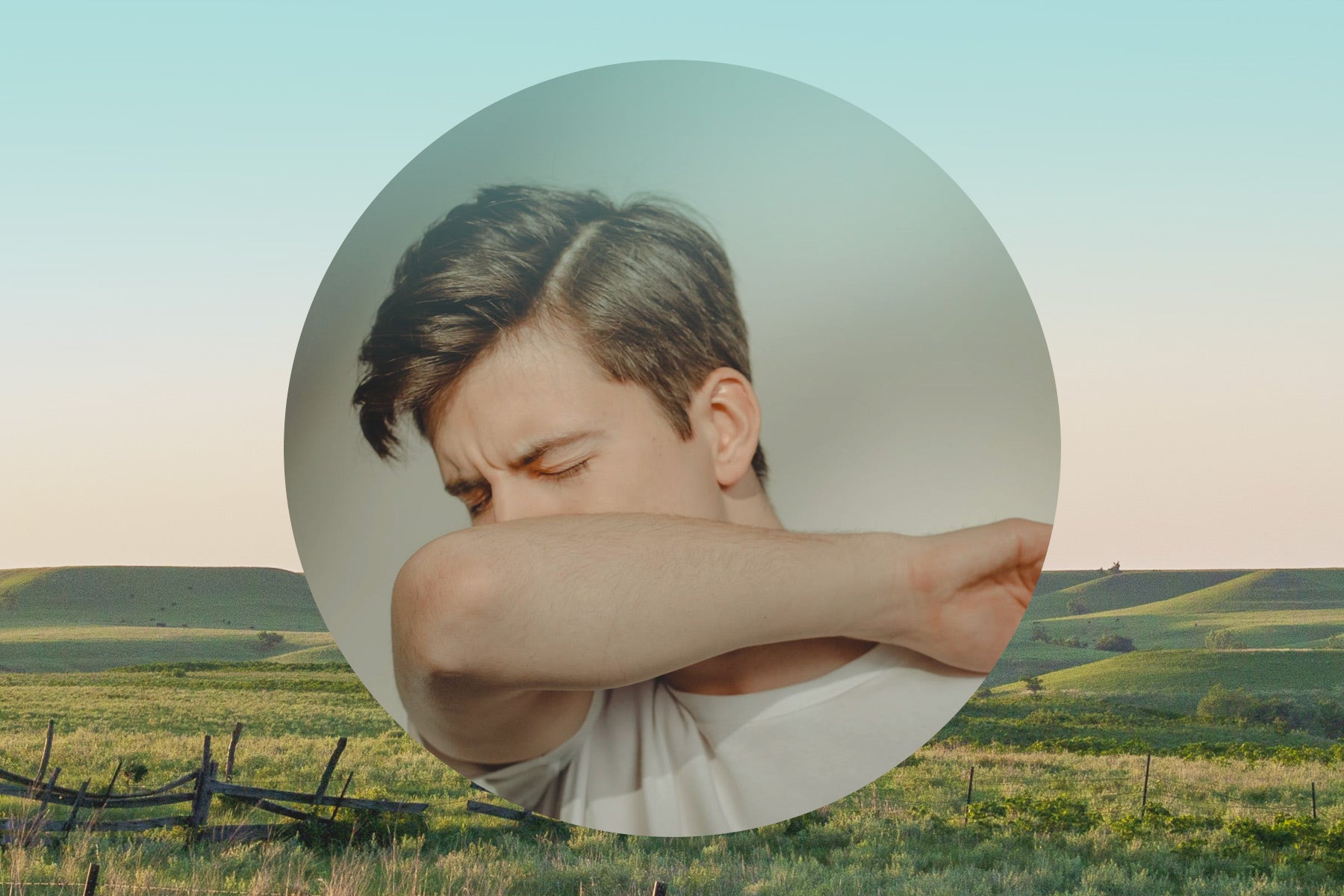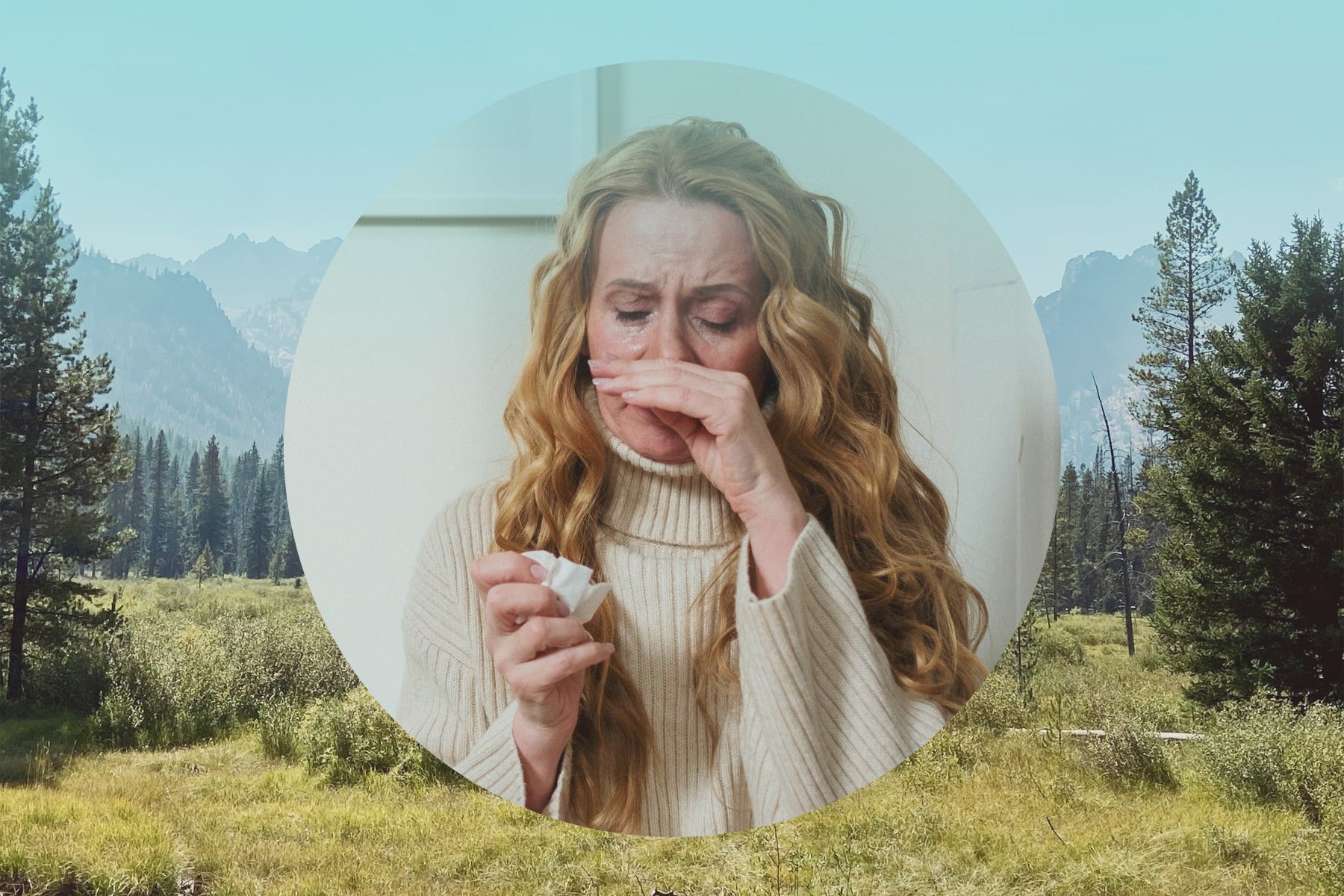Breathe Freely
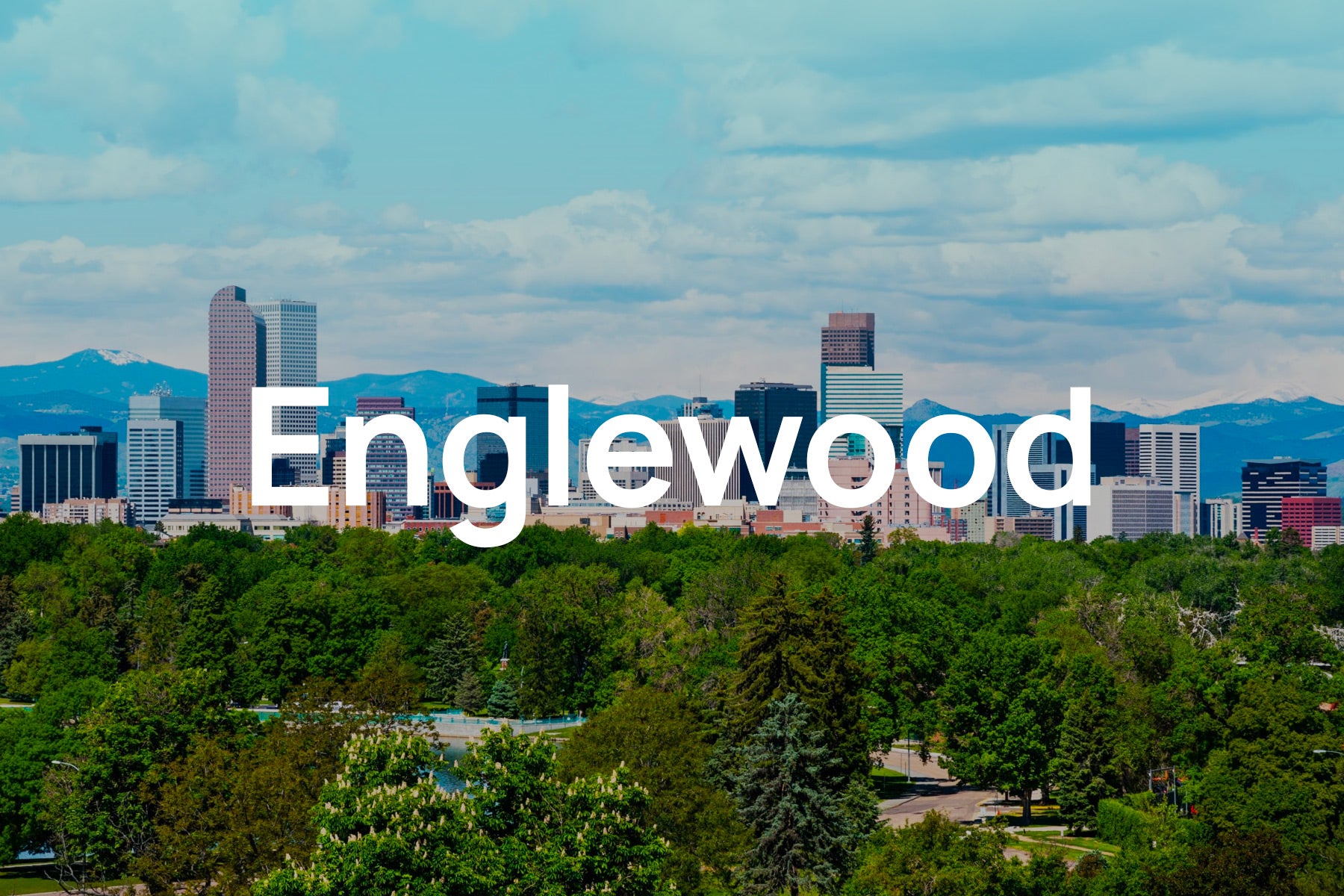
The Best Way to Manage Pollen Allergies in Englewood
A robust community in Denver’s beating-heart metropolis, Englewood is a gem for the creative and innovative. While brimming with human potential, this Colorado city is also home to an assortment of allergens! Learn how to protect yourself and others today.
Worried About Pollen Allergies in Englewood?
Englewood, Colorado, may be known for its rich tapestry of 35,000 residents, but this notably youthful, vibrant community is also host to a full range of allergens. Whether cooling off at the Pirates Cove Aquatic Center, playing a round on the Broken Tee Golf Course, or working out at the Englewood Recreation Center, the potential for allergies is always lurking!

Are You Vulnerable to Englewood’s Allergens?
The answer is more complex than you may think. While allergenic trees, grasses, and weeds exist throughout the Denver metropolitan area, every Englewood resident (or visitor) is different. Your particular sensitivities will depend on various factors, including your immune tolerance, shifting weather patterns, seasonal trends, and overall climate change.
If you’re concerned about pollen allergies in Englewood, be proactive. Track your symptoms and note the times, places, and periods in which issues occur. Do you get a stuffy or runny nose during particular months, like June and July? Do you find yourself feeling tired and congested as the leaves change?
How about during the winter, when people spend more time indoors? Do certain settings really trigger your symptoms? Could your allergies be due to perennial allergens like dust mites and pet dander, or do you find that high-pollen-count days really get you going?
For the best information, speak to an allergy specialist. With proper medical supervision, you can diagnose your Englewood allergies and start a treatment protocol that works.
Understanding Pollen Allergies in Englewood
If there’s one thing you should know about the city of Englewood, it’s that it is ripe for adventure. A haven for outdoor enthusiasts, the community provides all kinds of excursions. From day trips at the historic Cripple Creek to scenic hikes up North Table Mountain, your exposure to allergens is almost guaranteed.
The question is, will these various pollinating plants affect you?
While everybody is different, one thing can be said for Englewood. Its vegetation is as eclectic as its culture. Centered in the heart of Greater Denver, the metro area ranks right ahead of Colorado Springs in terms of overall pollen allergies.
Where Englewood Pollen Allergies Rank
A yellow, powdery substance released by plants during their fertilization cycles, pollen can become extremely… clingy. If you’re unfortunate, you may notice certain bad months where the grains streak across cars and buildings, covering everything from park benches to windowsills.
Wondering how Englewood’s pollen counts compare to those of other cities?
Truth be told, there isn’t an exact answer. While the Asthma and Allergy Foundation of America (AAFA) has published its 2023 Allergy Capitals report, this list is not exhaustive. In fact, the list only includes the 100 most-populated metro areas in the country, excluding Hawaii and Alaska. That means that the smaller city of Englewood, with under 40,000 residents, does not make the cut.
That said, one can draw inferences based on the rankings of the larger Denver metro area, of which Englewood is a critical part. According to the AAFA rankings, Denver scores an overall “Average” rating, coming in at #68. In terms of tree, grass, and weed pollen, Denver ranks #34, #80, and #69, respectively.
The AAFA finds Denver to be “Average” for overall pollen counts, “Average” for the use of over-the-counter allergy medications, and “Better Than Average” for its number of certified specialists.
The city of Englewood itself is home to the renowned Swedish Medical Center, the spine-and-brain Craig Hospital, and a Kaiser Permanente facility.
Which Allergens Cause The Most Issues in Englewood?
You’re not going to like hearing it, but research shows that pollen allergies may be worsening. More specifically, your typical allergy season is getting longer, lasting on average 10 days longer, starting 20 days earlier, and circulating 21% more pollen than in recent decades!
Bottom line: Always be wary of seasonal allergies.
While Englewood is similar to the rest of Denver in its local allergens and plant species, it’s important to note exactly which trees, grasses, and weeds may be triggering your symptoms.
Remember, symptoms and triggers may vary widely from person to person.
Moreover, your allergies can fluctuate significantly from setting to setting, month to month, and season to season. Depending on your exposure to a given allergen, you could experience symptoms for just days, or in the case of ‘hay fever’ or allergic rhinitis, even months!
It’s important that you always consult your healthcare provider for the most relevant information. A medical professional can help guide you toward an effective treatment based on your unique diagnosis.
But don’t let that stop you from researching on your own! It’s always good to be informed and have the right questions and concerns when you meet your doctor.
Curious about potential sources of your pollen allergies in Englewood? Use the following table for a better understanding:
Sources of Pollen Allergies in Englewood, CO
<style>
.my-class {
overflow: auto;
width: 100%;
}
.my-class table {
border: 1px solid #DEDEDF;
height: 100%;
width: 100%;
table-layout: fixed;
border-collapse: collapse;
border-spacing: 1px;
text-align: left;
}
.my-class caption {
caption-side: top;
text-align: left;
}
.my-class th {
border: 1px solid #DEDEDF;
background-color: #ECEFF1;
color: #000000;
padding: 5px;
}
.my-class td {
border: 1px solid #DEDEDF;
background-color: #FFFFFF;
color: #000000;
padding: 5px;
vertical-align: top;
}
</style>
<div class="my-class" role="region" tabindex="0">
<table>
<thead>
<tr>
<th><b>Tree Species</b></th>
<th><b>Grass Species</b></th>
<th><b>Weed Species</b></th>
</tr>
</thead>
<tbody>
<tr>
<td><ul><li>Ash</li><li>Box Elder</li><li>Gambel Oak</li><li>Hazelnut</li><li>Lombardy Poplar</li><li>Maple</li><li>Ponderosa Pine</li><li>Rocky Mountain Juniper</li><li>Russian Olive</li><li>Salt Cedar</li><li>Siberian Elm</li><li>Water Birch</li><li>Western Cottonwood</li><li>Willow</li></ul>
</td>
<td><ul><li>Bermuda</li><li>Orchard</li><li>Salt</li><li>Reed Canarygrass</li><li>Western Wheatgrass</li></ul>
</td>
<td><ul><li>Burweed Marsh Elder</li><li>Cocklebur</li><li>English Plantain</li><li>Firebush</li><li>Fourwing Saltbush</li><li>Giant Ragweed</li><li>Lamb's Quarter</li><li>Pasture Sagebrush</li><li>Poverty Weed</li><li>Prairie Sagebrush</li><li>Redroot Pigweed</li><li>Russian Thistle</li><li>Sheep Sorrel</li><li>Short Ragweed</li><li>Western Ragweed</li><li>Yellow Dock</li></ul>
</td>
</tr>
<tbody>
</table>
As you can see, there are fewer species of allergenic grasses than trees and weeds, but that doesn’t mean you won't be sneezing, coughing, and suffering when the grass pollen circulates! From itchy eyes to clogged sinuses, rashes, and extreme exhaustion, your symptoms can be all over the place.
Fortunately, there are ways to get ahead. If seasonal pollen allergies in Englewood have you feeling yucky repeatedly, consider testing yourself. With easy-to-use at-home allergy tests, you can provide a quick sample and figure out what might be causing your symptoms.
Of course, you should also consider the role of air quality. With poor air quality, allergies to pollen can become far worse. Even more, you may struggle to determine exactly what is causing your issues, confused by overlapping and exacerbating symptoms.
The Truth Behind Englewood’s Air Quality and Pollen Levels
When we think of air quality, we may imagine huge congested cities like Los Angeles, where the orange smog settles over the skyline like a heavy cloak. Or perhaps, we envision a teeming metropolis across the world, worsened by loose environmental regulations and controls.
But as it turns out, the small city of Englewood, Colorado, is not free from these problems. In fact, Denver has often been recognized as a bad place for air quality, exceeding the federal government’s allowance for unhealthy ozone days. Combined with circulating pollen, these pollutants and irritants can wreak havoc on sensitive immune systems.
What Causes Poor Air Quality in Englewood?
Situated at a high elevation relative to most U.S. cities, Englewood, CO, experiences an interesting range of weather patterns. Because of its location in the South Platte River Valley, the city rarely experiences heavy winds. While this may be good in the sense that allergens from afar don’t get blown in, it also means that allergens within the valley take a while to get blown out.
With average highs of 87°F in July and 43°F in December, the temperatures can range quite a lot over the course of the year. These fluctuations across the valley make it easy for certain allergies to linger in the summer and winter when grass and tree pollen start kicking in.
Because the valley seals in allergens and pollutants, people with sensitivities get a double dose. Whether it’s emissions from vehicles, wood-burning and heaters, or wildfires, the pollution in the city further complicates the science of overcoming allergies.
One of the main culprits of poor air quality and increased seasonal allergies is something called PM2.5.
The Role of PM2.5 in Englewood Allergies and Pollution
The Environmental Protection Agency (EPA) relies on an Air Quality Index (AQI) for determining the conditions of air throughout the country. This Index measures the level of public health concern across six ranges: Good, Moderate, Unhealthy for Sensitive Groups, Unhealthy, Very Unhealthy, and Hazardous.
One of the primary pollutants that impacts these AQIs is PM2.5.
PM2.5 refers to “particulate matter” with a diameter of 2.5 or fewer microns. In other words, very small matter that can easily be absorbed by the body without you realizing it. Because of the ongoing threat of this pollutant, the World Health Organization (WHO) sets very stringent annual air quality guidelines. As it turns out, Englewood, Colorado, routinely exceeds these PM2.5 guidelines.
This is not good. While exposure to such particles can cause symptoms similar to seasonal allergies, research also indicates that chronic exposure may lead to cancer, immune dysregulation, and even neurodegenerative disorders like dementia and Alzheimer’s.
Although environmental factors, such as wildfires, are a major contributor to high PM2.5 levels, you can also get exposed indoors. Candles and some decorations may produce PM2.5, and like pollen, these minuscule particles can sneak into your house through open windows and doors, thereby inducing allergy-like symptoms.
Pollutants Vs Pollen Allergies in Englewood
Caused mostly by combusting oil, wood, gasoline, or diesel fuel, the fine particles of PM2.5 can trigger a range of side effects. While these short-term symptoms may not be debilitating, they can certainly make it difficult for people with asthma and allergies. Not to mention the long-term, unknown effects!
If you’re struggling with perennial or seasonal allergies in Englewood, the last thing you need is more pollutants!
The short-term symptoms of PM2.5 exposure include:
- Red/Itchy/Watery Eyes
- Skin Irritation
- Sneezing
- Runny/Stuffy Nose
- Difficulty Breathing
- Coughing
- Fatigue
- Heart Arrhythmia
If you’re experiencing any of these symptoms, the first thing you should do is consult a specialist. While certain over-the-counter medications may help, these treatments usually only provide temporary relief. As always, you should also practice preventative measures to reduce exposure to both pollutants and allergens.
All it takes is a little consistency day by day!
Be sure to change clothes and shower regularly, especially when outdoors. On smoky, high-pollution days, consider wearing a mask or staying indoors. Clean your home and vehicle thoroughly, vacuuming and dusting as well. And don’t forget to keep your HVAC units and filters up to date. You can actually purchase brands that are certified asthma and allergy-friendly, which can make a world of difference!
Are You Sick of Pollen Allergies in Englewood?
Whether you’ve experienced the spectrum of pollen allergies or you’re new to that oh-so-discomforting feeling, there may be a solution for you!
Allergy drops, or sublingual immunotherapy, work differently than most treatments. While allergy shots have been around for years, under-the-tongue drops represent a relatively newer treatment approach. This easy, convenient, self-administered therapy may be the perfect option for you!
Founded in Denver, Colorado, Quello understands pesky pollen better than most. That’s why we make it simple. To get started on your allergy treatment plan, all you need to do is provide a sample.
Once your sample is analyzed by our lab, we formulate personalized drops that you can take every day at your convenience. All drops are unique, tailored to the precise allergens causing your immune system overreaction.
Note: Allergy drops are not a proven treatment approach. While some studies support sublingual immunotherapy, it may not work for everyone. As always, consult your healthcare provider for medical supervision.

FAQ
When Is Pollen Season in Englewood, Colorado?
With a cooler, drier climate, Englewood typically experiences seasonal allergies as early as January and as late as November. Because pollination cycles may vary, it’s difficult to determine precise pollen peaks. Typically, you can expect tree pollen in the late winter and spring, grass pollen during the summer, and weed pollen during the fall. You should also be mindful of perennial, non-pollen allergies such as dust mites, cockroaches, pet dander, and mold.
How Come My Allergies Seem Worse This Year?
Allergies are complex and fickle. One season you feel fine, the next season you’re completely clogged up and feeling awful. Ultimately what impacts your symptoms is your exposure to the allergen. Everyone is different. Some people are sensitive to trees and grass, some are allergic to ragweed. Given shifting weather patterns and overall climate change, pollen seasons appear to be both lengthening and worsening.
Not sure what’s causing your issues? Consult your healthcare provider for a specific diagnosis and treatment. You can also take an in-home allergy test to help determine your sensitivities.
How Do DIY Allergy Test Kits Work?
It’s pretty simple. First, you receive the entire test kit by mail with all materials (and directions) included. Then, all you have to do is follow the steps! Most kits require just a small prick of the finger for a blood sample. Once you mail the sample off to the lab, you wait for the results. Based on your particular allergen vulnerabilities, you will receive a tailored allergy drop formulation fit to your immune system needs.
How Effective Are Allergy Drops For Pollen?
As with any treatment, there are no guarantees. While some patients observe marked improvements in symptoms, even living allergy-free, others may exhibit no discernible change. In some cases, patients may even experience reactions.
The good news is, allergy drops are minimally invasive, convenient, and fully personalized. If you’re considering sublingual immunotherapy, schedule a FREE consultation today.
Overcome your allergies at home with our doctor-led therapy.
Get started with our free allergy test kitGet Started with no test needed.
Overcome your allergies at home with our doctor-led therapy.
Get started with our free allergy test kitGet Started with no test needed.

